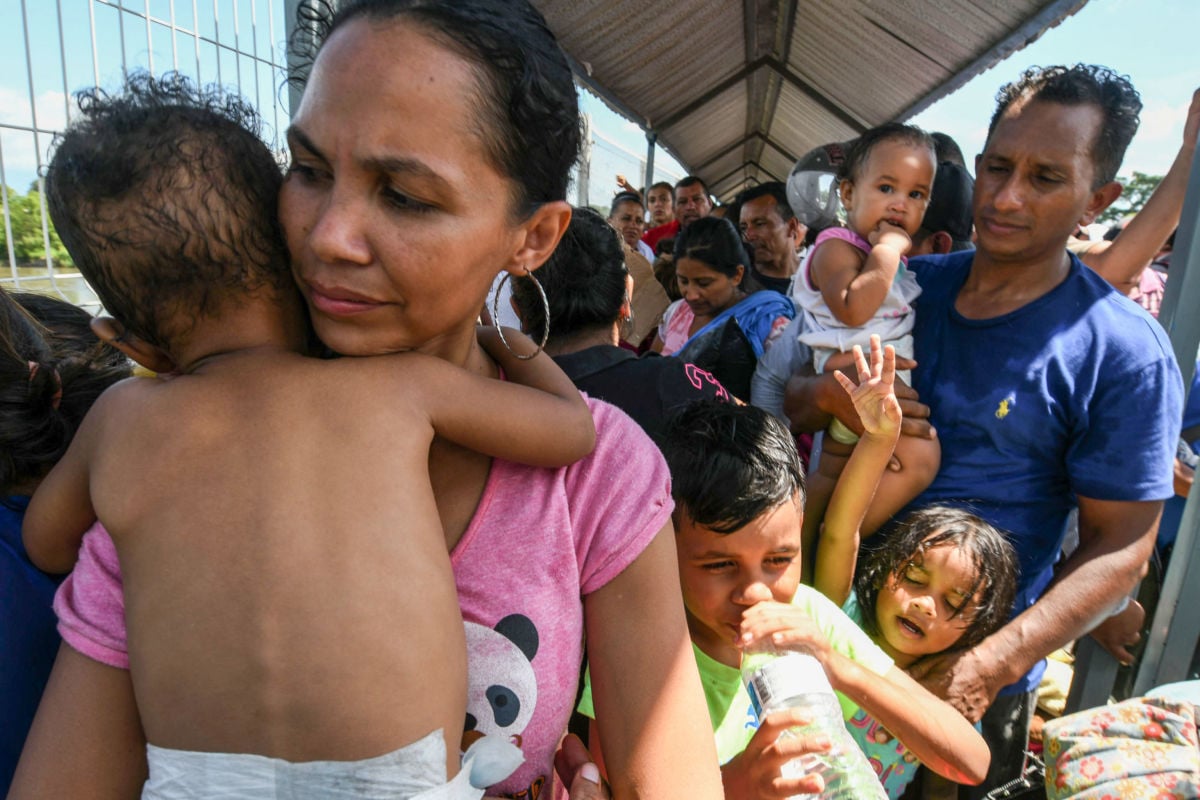Tapachula, Mexico — Fernando lifts up his shirt to show a sizeable scar on his abdomen, the result of an attack by robbers. Born in the Honduran coastal city of Tela, he was shot 10 times by thieves who wanted to take his bicycle. After barely surviving that episode, he knew he had to leave his homeland.
Fernando, who, like many migrants here at the Mexico-Guatemala border, did not feel comfortable providing his full name, has joined the migrant caravan that is destined for the United States. After traveling for days from Honduras through Guatemala, many of those traveling with the caravan have been stopped in their tracks by Mexican authorities, who have slowed official crossings to a trickle.
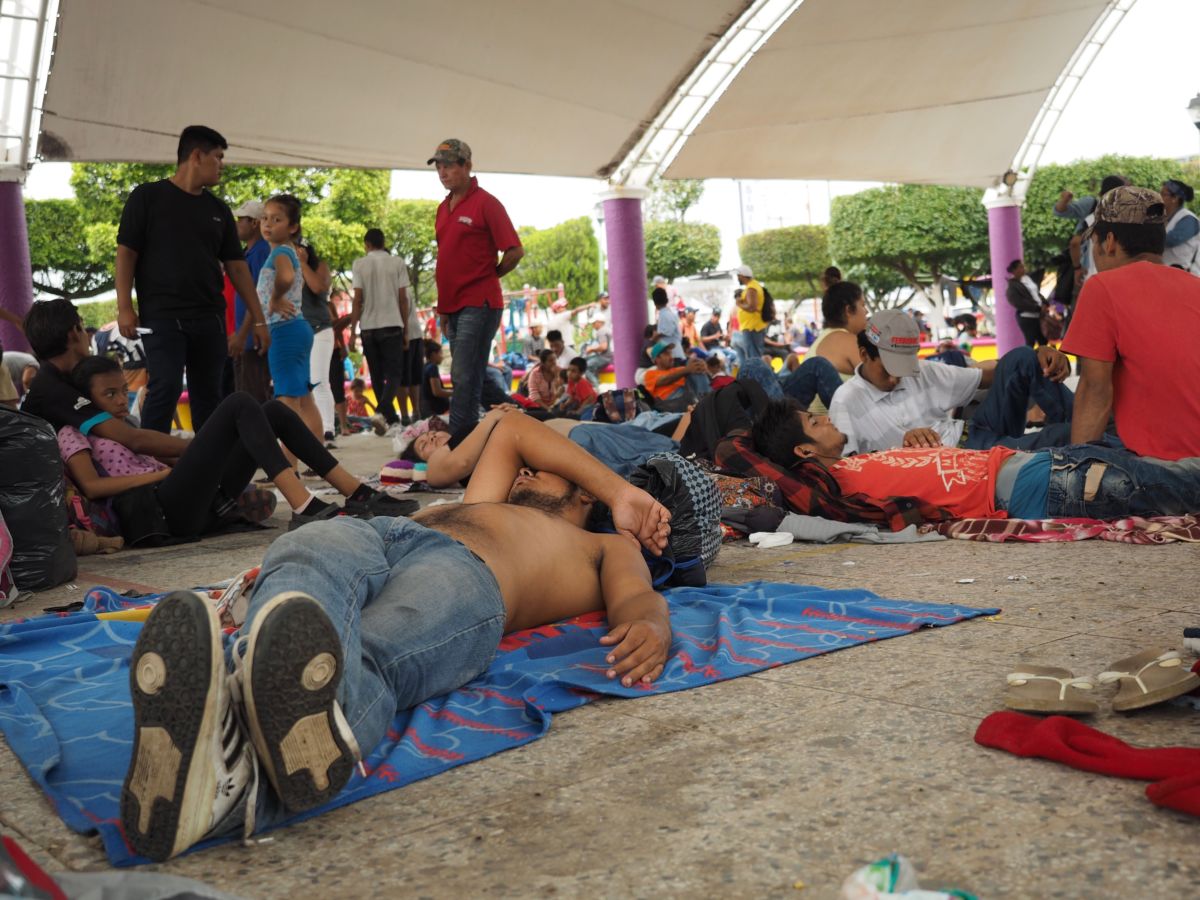
Mexican officials at the Ciudad Hidalgo crossing claim they only have the capacity to process 300 people a day, stranding many on the bridge, which has become a de facto refugee camp. It’s a strategy similar to the one deployed by US authorities on the US-Mexico border, where guards stop asylum seekers from even reaching the other side of the border. The aim is to wear out those who seek to enter and force them to turn back.
But for the thousands amassed on the bridge linking Mexico and Guatemala, there is no turning back. Crime and poverty have made life in Honduras virtually impossible. People on this caravan are desperate and feel like there is no other choice.

“We are not migrating, we are fleeing,” Timothy, who has come from the city of El Progreso, Honduras, told Truthout.
Honduras has been racked by political turmoil since 2009, when a US-backed coup ousted the democratically elected government of Manuel Zelaya, inaugurating a period of rule by the right-wing National Party. Honduran President Juan Orlando Hernandez, a close ally of the United States, was re-elected in 2017 in a dubious election that was widely perceived as fraudulent by observers. Despite months of protest, the fraud was consolidated, leaving many feeling like there is little hope their lot will ever improve.
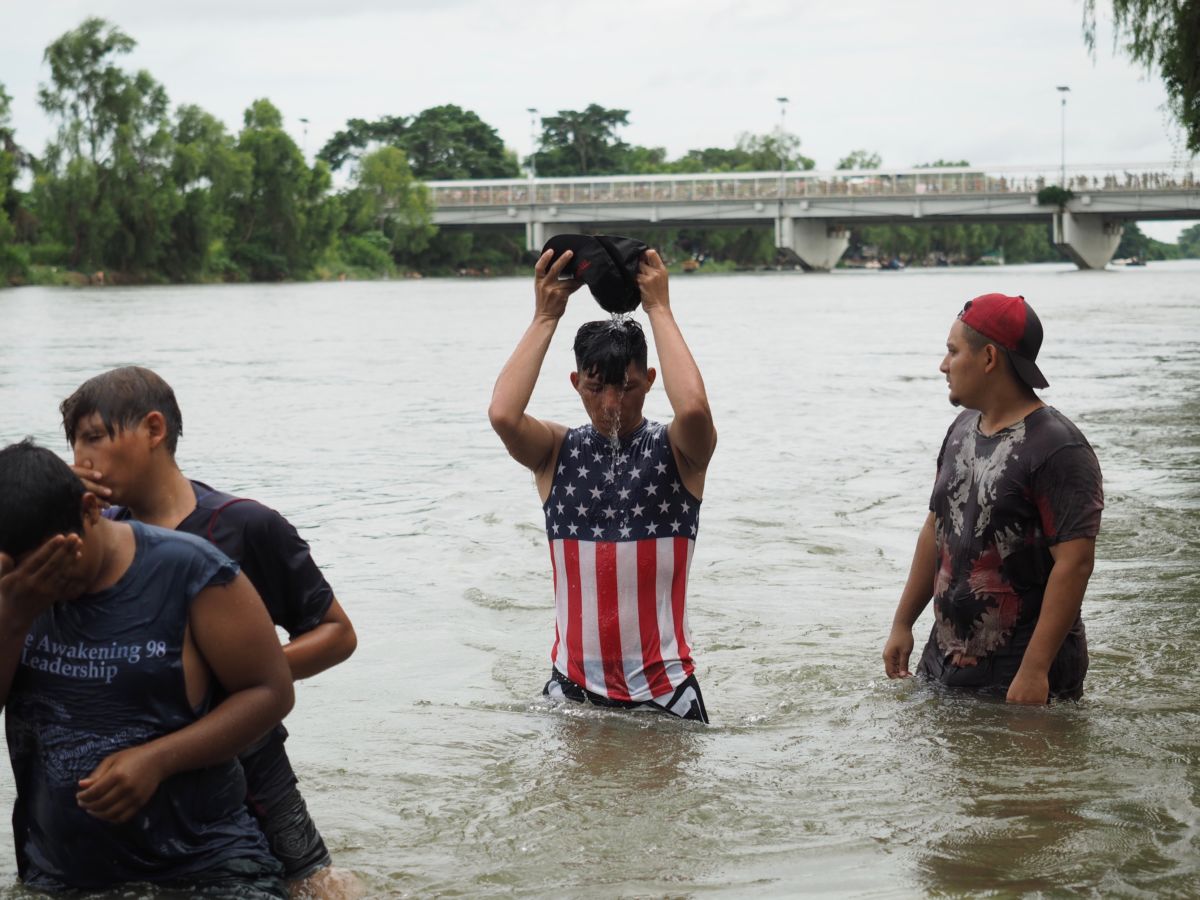
“Things cannot be improved [in Honduras],” Honduran migrant Victor Ricardo Mejía Martinez told Truthout. “We’ve tried one way or another, through strikes, and it’s impossible. There are always problems. There is no way to fix it.”
Honduras is a country of 9.2 million but over 6 million live in poverty. The Honduran think tank FOSDEH found that in 2017 alone, poverty increased by approximately 6 percent, with nearly 400,000 new people falling below the poverty line.
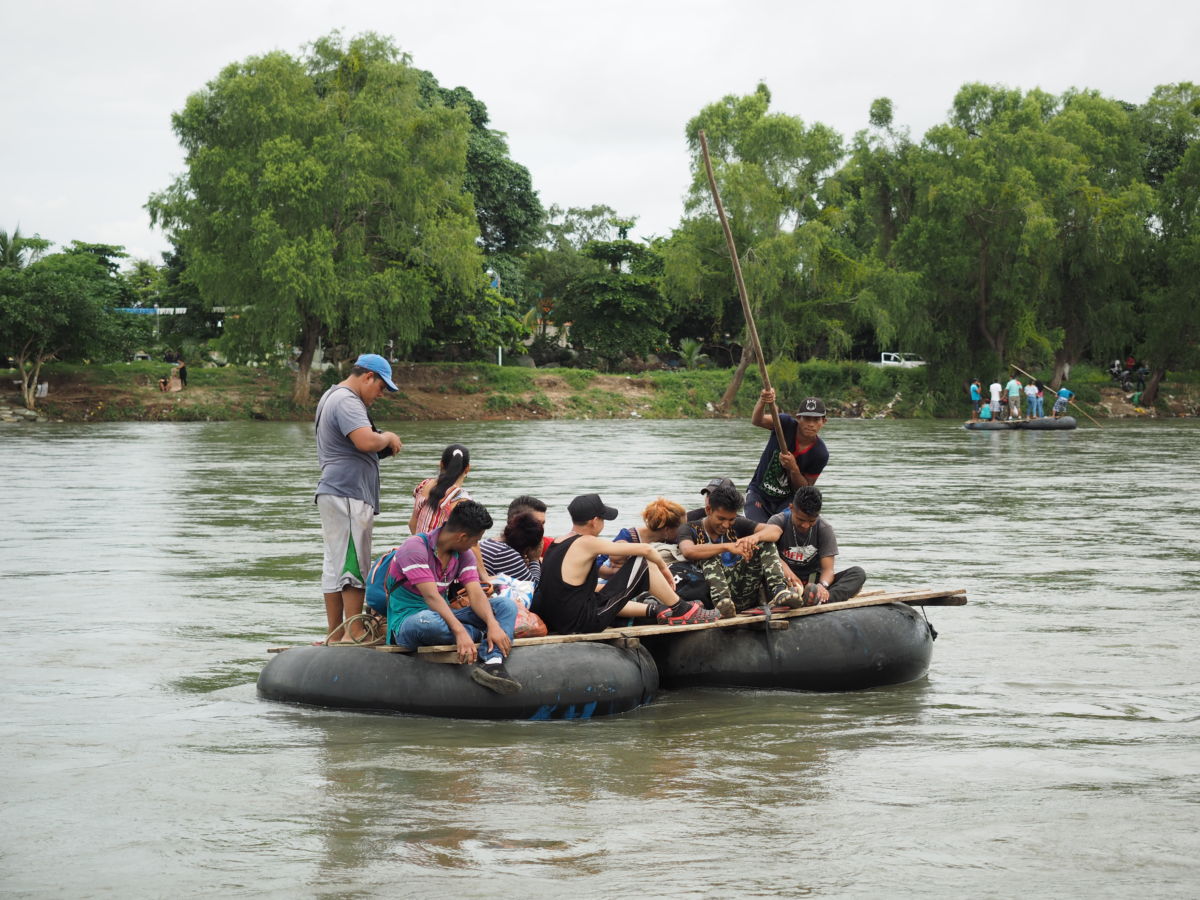
Facing bad press, the Honduran government has claimed that the migrant caravan is political theater created by the political opposition in Honduras, and it has propagated the myth that people are being paid to participate.
Mejía Martinez denies anyone has been paid to be here.
“We’ve all come here with the little bit of money we had,” Martinez said.
Unprecedented Numbers of People

Facing a gate that is chained shut, thousands of those traveling in the caravan opted instead to cross the river on rafts, which charge approximately $1.50 US dollars per person. Despite the heavy police presence on the bridge linking Guatemala with Mexico, there is no effort to stop those who enter via rafts.
The city of Ciudad Hidalgo sits on the edge of the Suchiate river, right across the border from Guatemala. Its main plaza, mere meters from the river crossing, is the gathering place for many who chose to cross into Mexico.
Although the city is used to the arrival of non-status migrants, they have never seen anything on this scale. The mayor, with desperation in her voice, has solicited help from the world.
“I do not grow tired of asking, with a cry of desperation — we need food and help. People are sleeping on the floor. What we have is not enough,” said Mayor Sonia Eloina Hernandez Aguilar.
With waves of migrants still due to arrive, this city will continue to be the first point of contact for migrants in Mexico. Without help, this crisis could easily become a humanitarian disaster. Organizations like the Red Cross are on site to provide some essentials to migrants, but due to the volume of people passing through, the existing facilities are not enough, with most shelters operating at or above capacity.
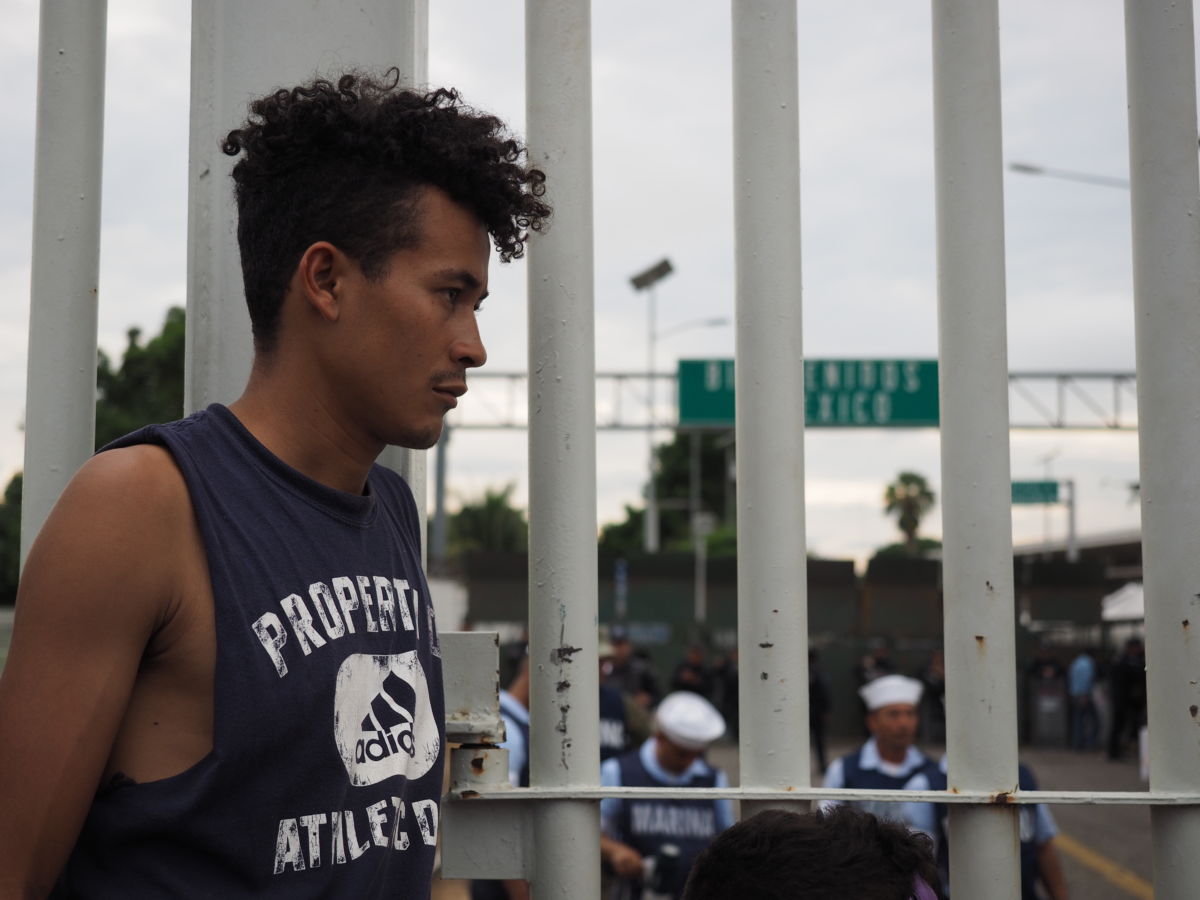
Opponents of human migration assume that with enough guards, fences and walls you can stop the movement of people; but ultimately all this does is put already vulnerable people into an even more precarious situation.
In the case of this caravan, the closing of the official Mexico-Guatemala crossing has led to a public health challenge, with many choosing to make camp on the bridge or taking a perilous journey across the river on a shaky raft.
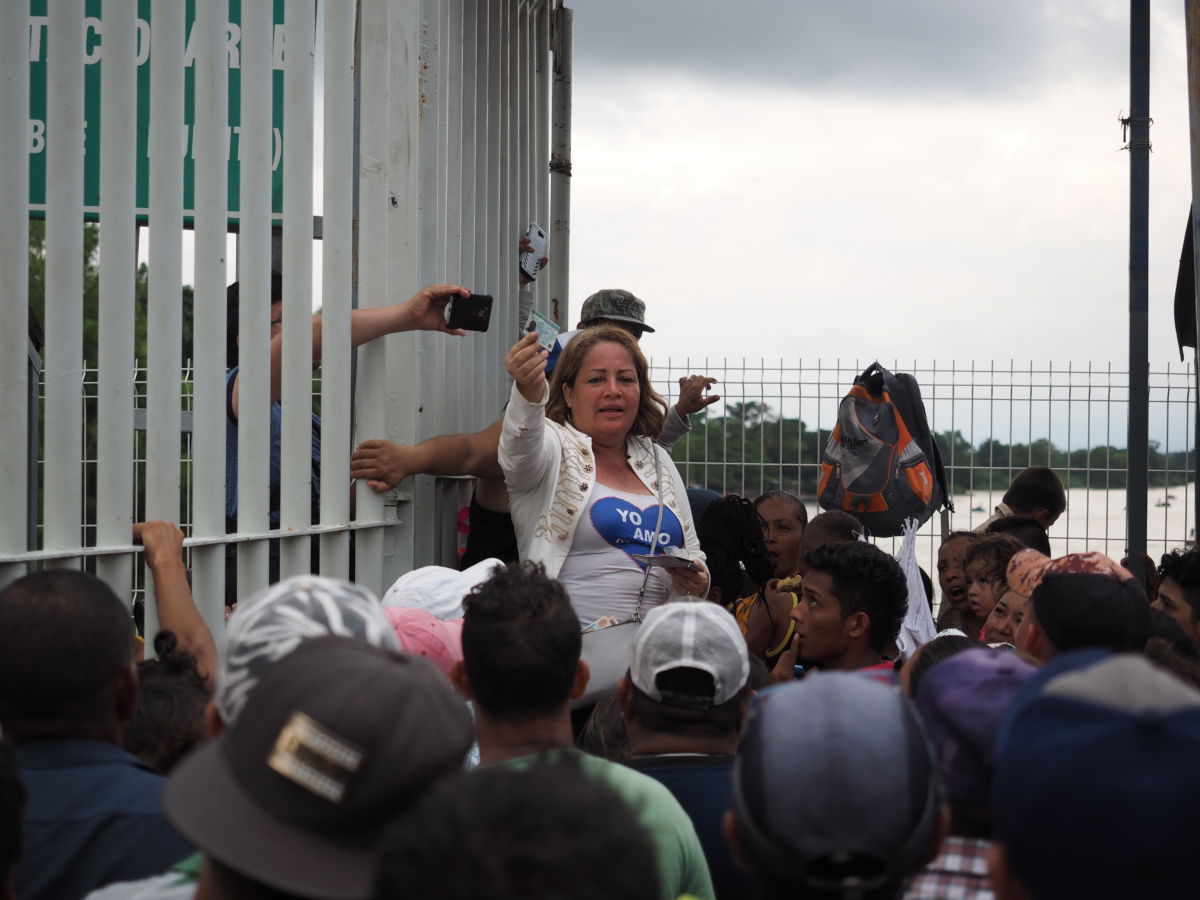
“We knew they could not cross by regular means, they would seek other ways to cross and that effort to cross is where they become more vulnerable and face greater risk,” Soleil Gomez, a psychologist with Médicos del Mundo Francia, told Truthout.
Médicos del Mundo Francia has been working in the southern Mexican state of Chiapas for some time and frequently attend to undocumented migrants, including previous caravans that have passed through the area, but Gomez says they’ve never seen anything like this.
“For us, this is unprecedented — the amount of people who are here,” said Gomez.
Undeterred by Repression
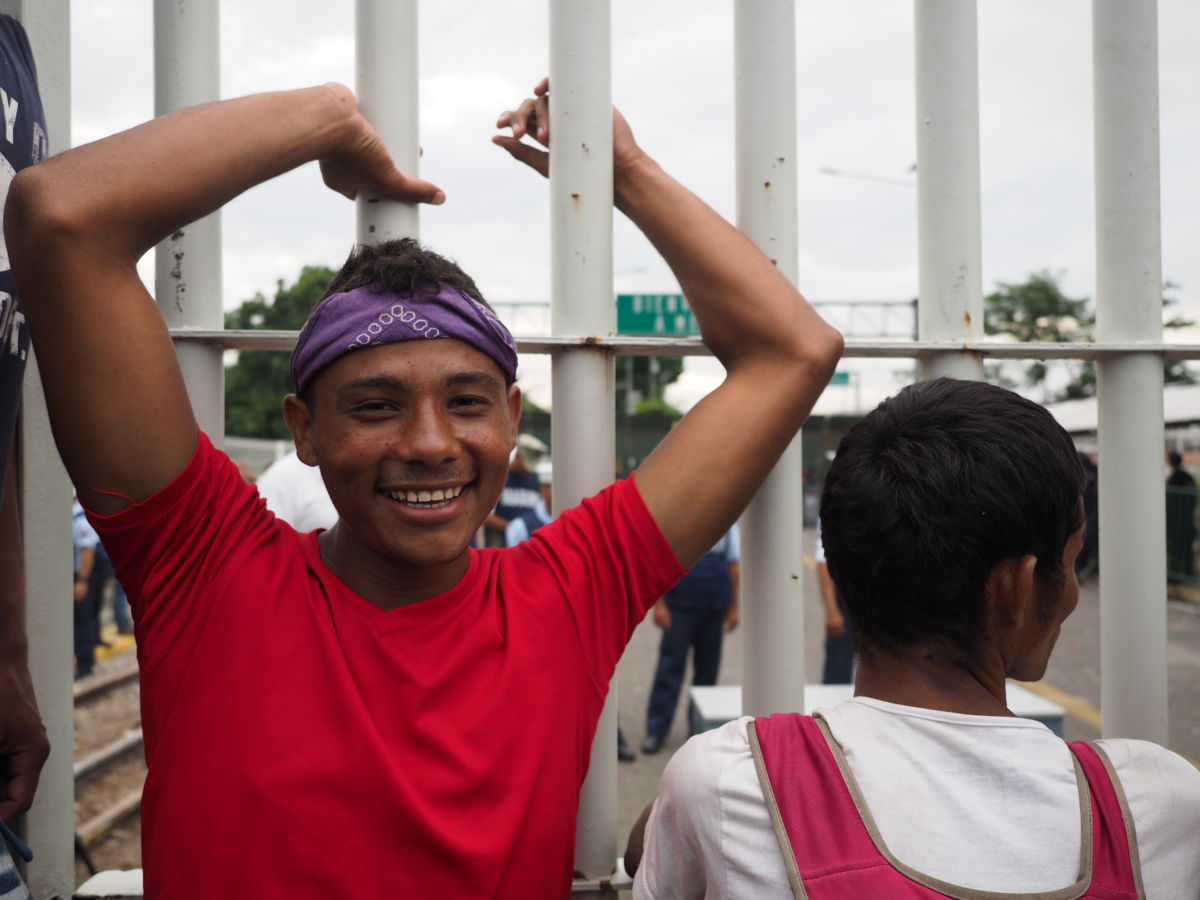
A key difference is that the last caravan merely passed through, whereas this one seems to be taking a longer time to move on. More importantly however, the last time there wasn’t the kind of militarized response from the Mexican state like there is this time around.
On Friday, after a group of migrants broke through the flimsy fence on the Guatemalan side of the bridge, Mexican Federal Police met the crowd with tear gas and repression. The caravan had placed women and children at the head of the crowd to dissuade police from using violence against the caravan but it was to no avail.

Cindy, a Honduran migrant from the city of San Pedro Sula, was on the bridge carrying her young niece when Mexican police attacked.
“We don’t come here because we want to,” Cindy told Truthout, fighting back tears. “The reality of our situation forces us to come here.”
“We are scared to return to Honduras, we are going to die of hunger. There are no jobs there, there is nothing,” she said.
Some critics have tried to paint the migrant caravan as an invasion, but those traveling are simply looking for an opportunity to work and provide for their families back home. Several said they were unconcerned about the potential racism they will face in the US or the possibility of being jailed and deported once they arrive.

Although many do not want to stay in Mexico due to the violence that is also found there, some, like Cindy, are happy to stay there if they are given work visas so they can legally be employed in Mexico.
This is precisely what Mexican President-elect Andres Manuel Lopez Obrador has offered to do, but he does not take office until December.
Asked why she didn’t wait for the new government to come into power, Cindy said, without hesitation, “Our children will die of hunger.”
Political Threats

Meanwhile, politicians from the US, Mexico, Honduras and Guatemala have all been working to try to stop people from traveling. The US government has put extraordinary pressure on all three countries to stop the flow of migrants, with US Secretary of State Mike Pompeo personally visiting Mexico on Friday to convey President Donald Trump’s wish to see the migrants stopped from reaching the US border.
In Honduras and Guatemala, their respective presidents met on Saturday to try to end the exodus, offering free buses so that migrants may return. They claim thousands have taken them up on the offer, yet many thousands more seem determined to join their compatriots on this journey. On social media there was yet another call for people to meet in San Pedro Sula, Honduras, to begin another caravan.

In response, both Guatemala and Honduras have deployed troops throughout their territories and closed down crossing points, though the legality of this move is not clear.
President Trump has threatened to cut off aid to Central America over this caravan. But it’s a threat that few are heeding here at the border.
“Truth is, the aid the that the US sends, we never see it. The politicians at the top, like President Juan Orlando, they see it,” Cindy told Truthout.
Some even seem resentful that politicians would try to use that aid against them.
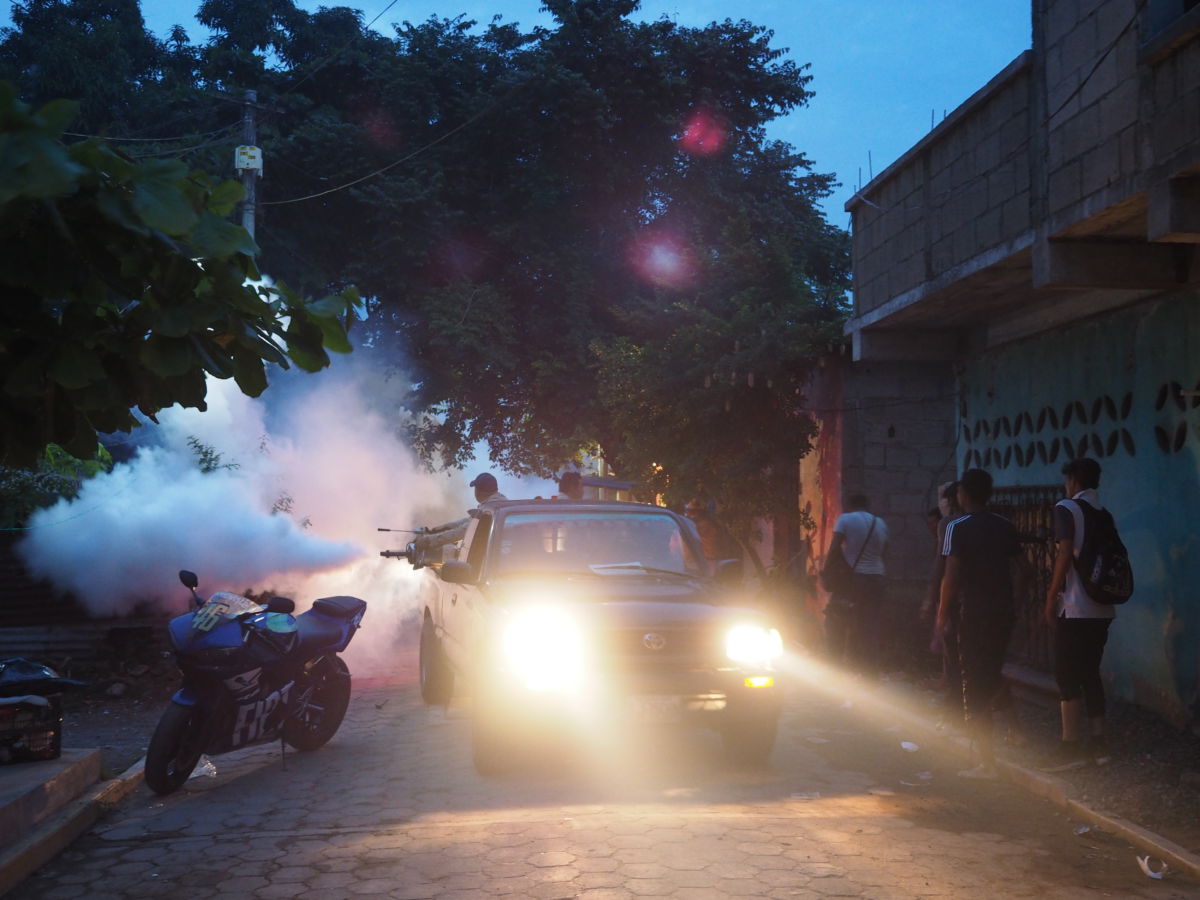
“Where is that help that the US is supposedly sending to Honduras? Why does it never reach the poor?” asks Timothy.

In Mexico, the first wave of migrants, numbering approximately 7,000, set off on foot on Sunday morning from Ciudad Hidalgo, destined for Tapachula. The crowd stretched out for over a mile. As they passed through town they were met with cheers and support from local residents, some who brought out whatever food and water they had in their homes to help stave off exhaustion in the sweltering weather, with temperatures reaching 80 degrees Fahrenheit.
Mexican police in riot gear had set up a blockade on the road halfway between the two cities. However, as the massive crowd approached, they seemingly received orders to back down, and boarded buses. Later they re-established a checkpoint, only to once again take it down before the caravan arrived. The crowd of thousands eventually made it safely to Tapachula, where they once again made camp in the city’s central square in order to rest before their next move.

The migrants still have a very long journey ahead of them, one fraught with danger. After the repression on the bridge on Friday afternoon, people are wary of trusting the Mexican government. They have declined to board the buses or be housed in refuges out of fear it is merely a ruse to have them deported. Instead they continue on foot, relying on each other and the goodwill of the people they come across along the way.
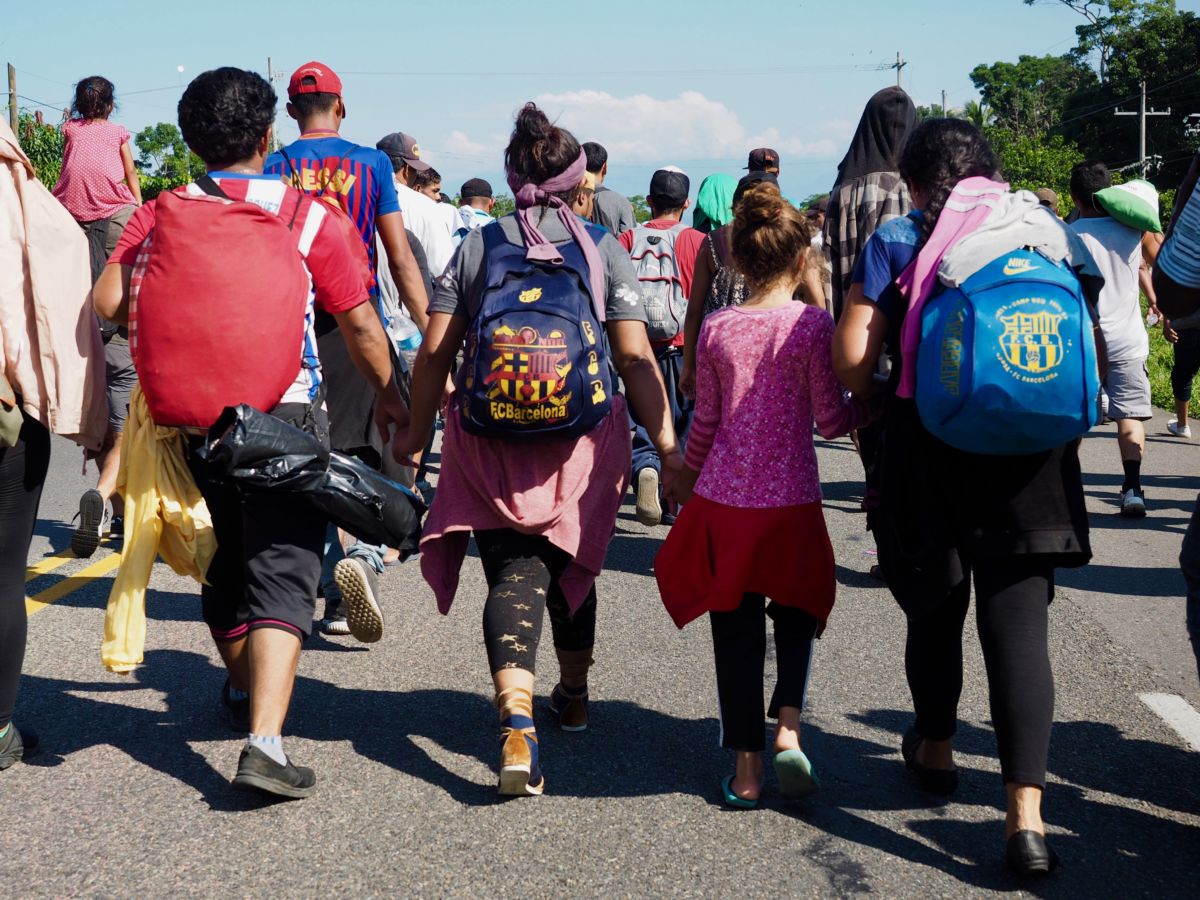
Angry, shocked, overwhelmed? Take action: Support independent media.
We’ve borne witness to a chaotic first few months in Trump’s presidency.
Over the last months, each executive order has delivered shock and bewilderment — a core part of a strategy to make the right-wing turn feel inevitable and overwhelming. But, as organizer Sandra Avalos implored us to remember in Truthout last November, “Together, we are more powerful than Trump.”
Indeed, the Trump administration is pushing through executive orders, but — as we’ve reported at Truthout — many are in legal limbo and face court challenges from unions and civil rights groups. Efforts to quash anti-racist teaching and DEI programs are stalled by education faculty, staff, and students refusing to comply. And communities across the country are coming together to raise the alarm on ICE raids, inform neighbors of their civil rights, and protect each other in moving shows of solidarity.
It will be a long fight ahead. And as nonprofit movement media, Truthout plans to be there documenting and uplifting resistance.
As we undertake this life-sustaining work, we appeal for your support. Our fundraiser ends at midnight tonight! We still need 163 new monthly donors to hit our goal. Please, if you find value in what we do, join our community of sustainers by making a monthly or one-time gift.
